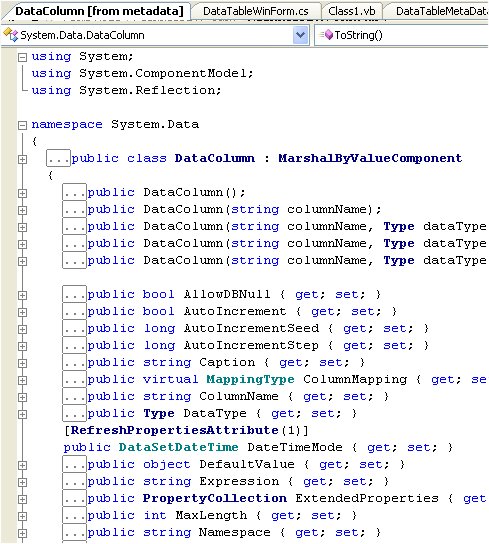Mario Cardinal’s presentation last night at Vermont.NET was fantastic and well attended!
Mario is one of those guys that big companies call in when they have enterprise problems that nobody can solve. He has been programming forever (it seems from all of the references he makes) and comes from a serious C++ background. (He is also a great presenter – in case anyone is interested in knowing that.)
I have hardly used the current application blocks – struggled with the updater and (sorry folks) but turned my nose up at the Data Access App block.
However, as he went through the various application blocks in the Enterprise Library (something I have really wanted to have happen a the user group for a long time – I was so happy when he suggested it) I recognized a few things that relate to WSE.
A lot of the blocks encapsulate things that I know I want and need to do in my applications that i have not taken the time to learn yet. So though I may be QUITE cozy with ADO and therefore have that snobby reaction to teh DAAB, I am not very good with event logging, for example. (Want to see my scores on my cert tests? Great on everything except really crappy on tracing/debugging and it is the tracing that brought me down.) So, like WSE, there are a few ways I could leverage these application blocks in their most basic way and get some quick and immediate funcationality into my app without having to (or should I say … before I have been able to) really learn about how that works. Just like with the basics of WSE2, you can just plug some key security into your web services without much education. Then like WSE2, I could start learning more about that particular task and leverage some of the more indepth features of the application block even customizing or extending it.
Another similarity to WSE2 is this. WSE, web services, even xml, are truly designed to handle interop issues. I am not doing interop. I am just writing .net clients with a .net back end. But I am using WSE2 in my solution becuase it was a quick and easy way to get some really good security built in.
The Enterprise Library is for Enterprise developers/applications. I am not writing enterprise application. But I will definitely be considering using those tools in my little apps, again, just to plug in some important functionality.
I fear this is another place where people will be making faces – it’s overkill, more than you need blah balh blah. I’ve heard the same about my use of WSE2. And don’t think that a million other developers like myself won’t be using WSE2 in the same way that I’m doing it. I will definitely pay attention to community response to the Enterprise Library as it moves from specs to usable code.
http://www.AcehAid.org

